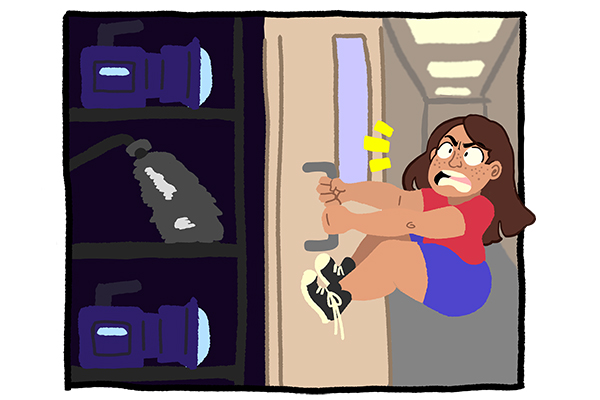Students say their ability to produce media content with high-quality equipment has been limited because of restrictions on University resources.
Kathleen Mabley, director of marketing and communication for the Moody College of Communication, said the Moody equipment checkout closed March 13 following University guidelines and remained closed for most of the summer. She said this semester, the equipment checkout is only serving in-person, hybrid and online production classes. She said operations are limited, focusing on classes that need specific equipment, and walk-up or individual checkouts are not allowed.
Hector Molina, a radio-television-film sophomore, said he had to buy cameras, tripods, microphones and more off eBay to create clips for scholarships and internships.
“The first (camera) was $400 … the other two were $200 for a grand total of $800,” Molina said. “So that’s basically one month’s rent.”
Molina said he was thankful to get enough money to pay for the equipment, but not everyone has that ability.
“It really comes down to people that have the resources to buy these cameras and get ahead during this pandemic time and those that are left … to struggle,” Molina said. “That’s just not fair.”
Christin Garcia, a radio-television-film sophomore, said she feels at a disadvantage because she is virtually attending classes from home. She said during one of her hybrid class labs, students in Austin get to practice with cameras, but students attending virtually cannot.
“Later on down the line, I just won’t know how to use it because I never had that hands-on experience that they have,” Garcia said.
Garcia said she feels like she is falling behind other radio-television-film students by only being able to create clips on her phone.
Michelle Facio, journalism and radio-television-film junior, said she had to share a camera, tripod and microphone with another student for her hybrid video production class.
“The person I was sharing with lived in San Antonio … and would travel (to Austin) so we would give off equipment,” Facio said.
Facio said even when she doesn’t have the equipment, she is still able to use her phone and the software on her computer she bought in previous semesters.
“I’m still getting to learn how to use the equipment and how to familiarize myself with different software,” Facio said. “But … I probably (won’t) be at the same level of experience where I should be.”





















